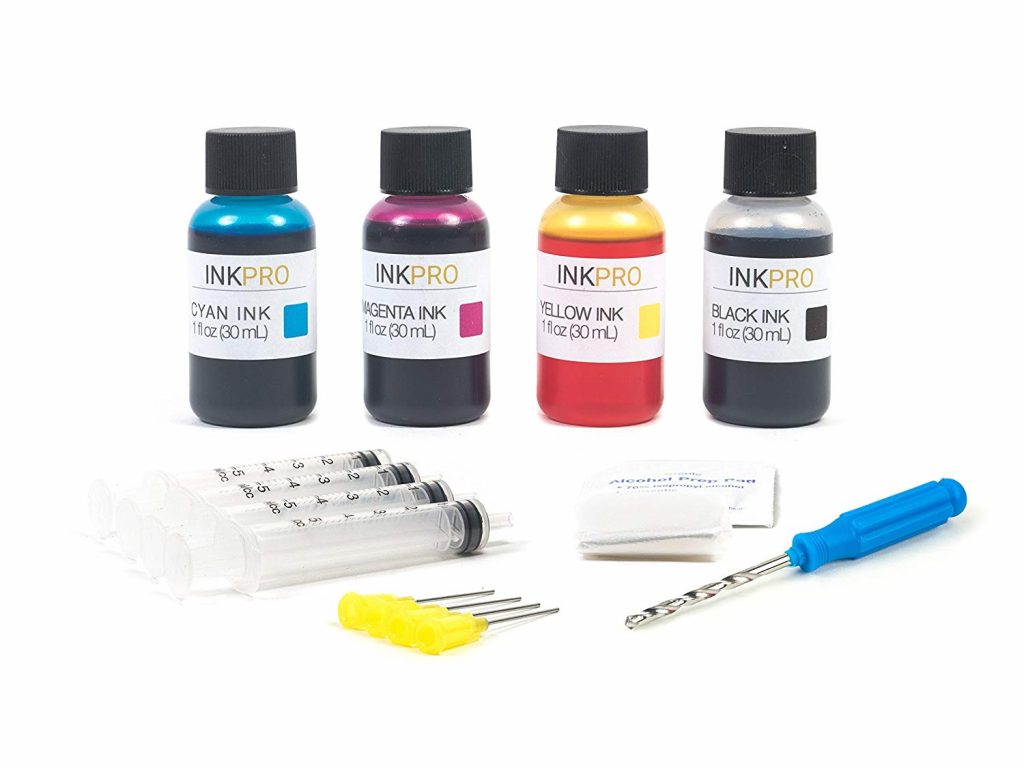Tech
Wild Startup Ideas Which Are Now Successes

What are the most crazy startup ideas which turned into successes? First asked on Quora and now turned into a global phenomenon, this question sparked a lot of interesting discussions on this topic. While a lot of ideas seem ridiculous in the beginning, they turned into massive successes later on because of the hard work the founders put into making their dreams come true. Here’s taking a look at ideas that seemed impossible to even be true and how they are one of the biggest success stories of today.
1. Quora
Founded by Alex D’ Angelo and Charlie Cheever, former Facebook employees, Quora took off from where Yahoo answers stopped growing. When something like this already existed, not many thought Quora would become a success. Founded in 2009, the website took off immediately and became so successful, it had 500,000 registered users by 2011. Now, 7 years later, Quora has a valuation of 900 million dollars and is one of the most successful startups in the world! Who would have thought piggy backing off an existing startup would quite literally squash the old one, right?

2. Facebook
When Mark Zuckerberg created a social media platform in his bedroom during a dull day at Harvard, little did he know he was sitting on an idea that would become the first ever trillion dollar company. While there were other social media networks already present (MySpace) what made Facebook stand apart from its competition was that Zuckerberg and his friends gave the world a service they did not think they needed. Furthermore, another unique selling point for Facebook was it was through invite only and this created an exclusive factor for the excited users. Now, so many years later, Facebook became the first company to enter the trillion dollar valuation.

3. Vitality Air
Fresh clean air is a luxury not many can afford, right? Apparently, Vitality Air, a startup of Canadian origin, thought the same. The founders (Moses and Troy) of this very bizarre startup realised a lot of people did not have access to clean, fresh air and the best way to counter this need was by bottling up the air they had in excess. Launched in the year 2014, Vitality Air grew so quickly, it shipped over 4,000 bottles to China in a week!

4. Holy Ink
How many times have you looked at your printer and realised you couldn’t use it because you ran out of ink? Father Bernard McCoy had the same difficulty and when he found out he ran out of ink, he decided the only solution to the problem was to start his own ink refilling business. Taking this idea forward, the eight brothers of Cistercian Abbey in Monroe put aside their singing for a while and got down to good old labour. From earning only $ 2000 as revenue in 2002, the brothers of this enterprising business ended up earning a whopping $ 2.5 million by the year 2005.

5. “I Do, Now I Don’t”
Every time you watch a man in the West buying a diamond ring for his fiance, you think, oh, this is so cute. Ever thought of what happens to the ring when the engagement is broken? Josh Opperman, the founder of I Do, Now I Don’t, was in the same predicament. His fiance of three months broke up with him and left behind a very expensive wedding ring. Instead of fretting about the problem of not being able to sell the ring, Josh Opperman came up with the idea of a website meant just for this purpose. Essentially, Josh created website based on selling rings and other jewellery with the same formula Craigslist uses! You know where to go when the jewelers refuse to give you a good price for your ring.

6. AirBnb
The idea for AirBnB came about when one of its founders realised couchsurfing could turn into a very lucrative business. What initially started off as a model where the owners rented out their homes to people, now has a valuation standing at $ 1.3 billion. When the idea initially came to be, a lot of investors were extremely skeptical and refused to invest in this idea. However, the founders believed in it so much that they started selling their own brands of cereal and breakfast foods to raise money! Based on political figures (Obama O’s, Cap’n McCain and Breakfast of Change,) and branded as limited edition products, these breakfast foods sold like crazy and within two months, they sold 800 cereal boxes, valued at $ 40 each. Earning a grand total exceeding $ 30,000, AirBnB hit the ground running and is now a revolution!

Ideas make the world turn and when you believe in something, you have to make it happen. If you think we missed out on any other really cool ideas, comment and let us know!
Tech
Paytm Grants ₹16.7 Crore ESOPs To Employees Under 2019 Stock Option Plan

Paytm parent One 97 Communications has granted fresh employee stock options (ESOPs) worth about ₹16.7 crore to eligible staff under its 2019 ESOP scheme, highlighting a stronger push toward employee ownership and retention. The grant covers 1,23,908 options, each convertible into one equity share with an exercise price of ₹9, significantly below the prevailing market price. At Paytm’s recent share price levels, this translates into a notional value of around ₹16.6–16.7 crore for employees.
The ESOPs are designed to align employee incentives with Paytm’s long-term growth, giving high-performing team members a direct stake in future value creation. As the options vest and are exercised, eligible employees can participate in potential upside from Paytm’s expanding fintech and payments ecosystem, subject to standard ESOP vesting conditions. The company has also confirmed that the scheme complies with SEBI’s share-based benefit regulations.
This ESOP grant comes soon after Paytm’s payments arm secured key RBI approvals to operate as a payment aggregator across online, offline and cross-border transactions, strengthening its regulated payments stack. Coupled with rising operating revenues, the fresh stock options signal management’s continued focus on attracting and retaining top talent even as profitability remains under pressure. For SEO, key phrases around “Paytm ESOP grant,” “₹16.7 crore employee stock options,” and “One 97 Communications employee ownership” capture the core update for search and news discovery.
Latest News
Apple’s iOS 18.7 vs iOS 26: Which Update Should You Choose for Your iPhone in 2025?

Apple’s recent iOS 18.7 rollout provides a secure alternative to the visually revamped iOS 26, empowering iPhone users to choose between system stability and next-generation features. While iOS 18.7 focuses on important security updates and bug fixes, it maintains the familiar iOS experience for users of older devices like iPhone XS, XS Max, XR, and SE models up to the 16e. The update is lightweight—about one-fifteenth the size of iOS 26—which means quicker downloads and less storage consumption. It’s designed for reliability and fast installation, making it ideal for users who prioritize a stable and secure operating system over design changes.
In contrast, iOS 26 introduces Apple’s ambitious “Liquid Glass” interface with a transparent look across apps, enhanced widget and lock screen customization, smarter Siri, and improved camera controls. These innovations, however, come with a larger update size and compatibility exclusive to newer iPhones beginning from the iPhone 11 series. While early adopters can enjoy the futuristic interface and AI-powered upgrades, major OS launches may present initial bugs or app compatibility issues that cautious users typically wish to avoid.
Choosing between iOS 18.7 and iOS 26 depends on each user’s priorities—those seeking guaranteed stability and fast security fixes should consider sticking with iOS 18.7, while users excited about premium features and visual changes should migrate to iOS 26 if their device supports it. Both updates are available through Software Update settings, and Apple will support iOS 18.7 for only a limited duration, eventually encouraging all users to transition to the latest platform. This dual update strategy ensures every iPhone user can safely update their device for a seamless and secure experience in 2025.
Tech
Apple’s iOS 26 to Automatically Pause FaceTime Calls Upon Nudity Detection

Apple’s upcoming iOS 26 introduces a new privacy-focused safety feature for FaceTime that automatically pauses both video and audio calls when nudity is detected on camera. This feature, discovered in the iOS 26 developer beta, is part of Apple’s expanded Communication Safety suite aimed primarily at protecting children from exposure to inappropriate content during live video chats. When nudity is detected, FaceTime freezes the call and displays a warning message, allowing users to either resume or end the call.
The nudity detection runs entirely on-device using advanced machine learning, ensuring that no images or videos are sent to Apple’s servers, thereby preserving user privacy. Although originally designed for child accounts as part of family safety tools announced at WWDC 2025, the feature currently appears active on all accounts in the beta version, including adults, which has sparked discussion about its broader application. Apple stresses that this local processing method keeps user data private while providing real-time protection against sensitive content during FaceTime calls.
Alongside this new safety measure, iOS 26 brings several other updates across the Apple ecosystem, including a new Liquid Glass design and enhancements to Messages, Wallet, and CarPlay. While the FaceTime nudity detection feature has not yet been confirmed for the final public release, its presence in the beta underscores Apple’s commitment to balancing user safety with privacy in an increasingly connected world. The full rollout later this year will clarify how widely the feature will be applied and whether users will have control over its activation













J88
November 5, 2025 at 5:59 pm
Đến với J88, bạn sẽ được trải nghiệm dịch vụ cá cược chuyên nghiệp cùng hàng ngàn sự kiện khuyến mãi độc quyền.
Kuwin
November 5, 2025 at 9:15 pm
kuwin sở hữu kho game đa dạng từ slot đến trò chơi bài đổi thưởng, mang đến cho bạn những giây phút giải trí tuyệt vời.
站群程序
November 9, 2025 at 7:09 pm
搭载智能站群程序,自动化搭建与管理,为SEO项目提供核心驱动力。站群程序
GO88
November 10, 2025 at 5:42 am
Tham gia cộng đồng game thủ tại Go88 để trải nghiệm các trò chơi bài, poker phổ biến nhất hiện nay.
MM88
November 11, 2025 at 4:51 pm
Với giao diện mượt mà và ưu đãi hấp dẫn, MM88 là lựa chọn lý tưởng cho các tín đồ giải trí trực tuyến.
站群程序
November 11, 2025 at 7:30 pm
采用高效谷歌站群策略,快速提升网站在搜索引擎中的可见性与权重。谷歌站群
iwin
November 30, 2025 at 4:15 pm
iwin – nền tảng game bài đổi thưởng uy tín, nơi bạn có thể thử vận may và tận hưởng nhiều tựa game hấp